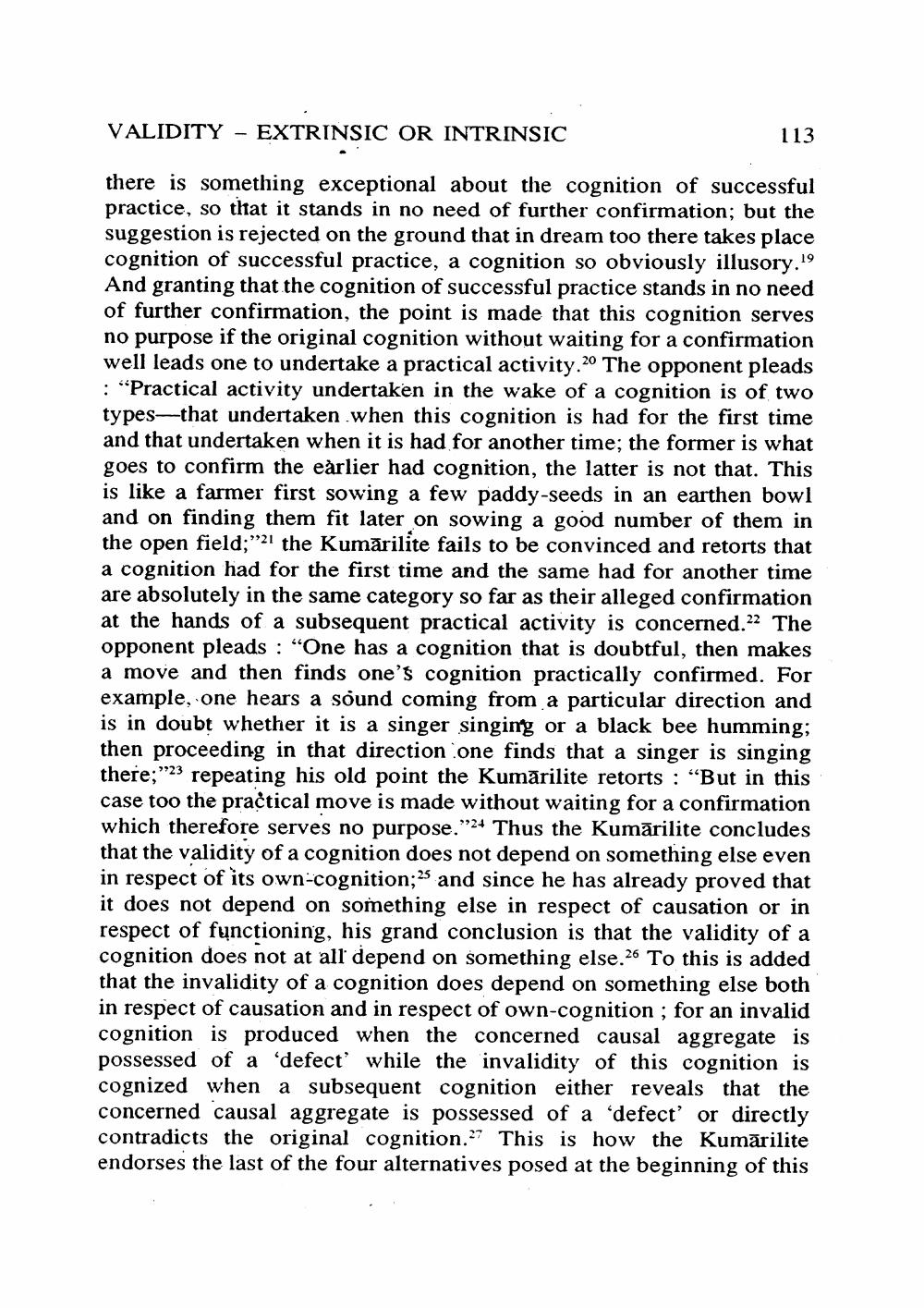________________
VALIDITY - EXTRINSIC OR INTRINSIC
113
there is something exceptional about the cognition of successful practice, so that it stands in no need of further confirmation; but the suggestion is rejected on the ground that in dream too there takes place cognition of successful practice, a cognition so obviously illusory.19 And granting that the cognition of successful practice stands in no need of further confirmation, the point is made that this cognition serves no purpose if the original cognition without waiting for a confirmation well leads one to undertake a practical activity.20 The opponent pleads : "Practical activity undertaken in the wake of a cognition is of two types—that undertaken when this cognition is had for the first time and that undertaken when it is had for another time; the former is what goes to confirm the earlier had cognition, the latter is not that. This is like a farmer first sowing a few paddy-seeds in an earthen bowl and on finding them fit later on sowing a good number of them in the open field;"21 the Kumārilite fails to be convinced and retorts that a cognition had for the first time and the same had for another time are absolutely in the same category so far as their alleged confirmation at the hands of a subsequent practical activity is concerned.22 The opponent pleads : “One has a cognition that is doubtful, then makes a move and then finds one's cognition practically confirmed. For example, one hears a sound coming from a particular direction and is in doubt whether it is a singer singing or a black bee humming; then proceeding in that direction one finds that a singer is singing there;"23 repeating his old point the Kumārilite retorts : “But in this case too the practical move is made without waiting for a confirmation which therefore serves no purpose.”24 Thus the Kumārilite concludes that the validity of a cognition does not depend on something else even in respect of its own-cognition;25 and since he has already proved that it does not depend on something else in respect of causation or in respect of functioning, his grand conclusion is that the validity of a cognition does not at all depend on something else.26 To this is added that the invalidity of a cognition does depend on something else both in respect of causation and in respect of own-cognition ; for an invalid cognition is produced when the concerned causal aggregate is possessed of a 'defect' while the invalidity of this cognition is cognized when a subsequent cognition either reveals that the concerned causal aggregate is possessed of a 'defect' or directly contradicts the original cognition. This is how the Kumārilite endorses the last of the four alternatives posed at the beginning of this




